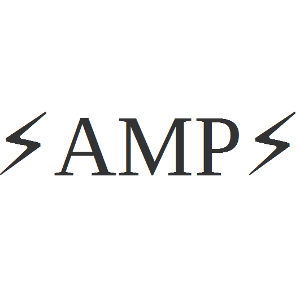| Google Attempts To Fix AMP - Makes It Worse |
| Written by Mike James |
| Wednesday, 17 April 2019 |
|
AMP is Google's attempt to speed up the web or to dominate it even more than it does at the moment - take your pick of these alternatives. In an attempt to address one of the biggest criticisms of AMP, Google has invented Signed Exchanges. A fix to a problem we didn't really need to have.
AMP is a restricted set of HTML and JavaScript features that can be used in a conforming web page. The idea is that the page will be faster if it makes use of a limited range of features which can be preloaded and ready to go. Initially AMP sounds harmless, but part of the deal is that Google will cache your pages and serve them from its own servers using its own URLs that are listed in search results. There have been various cautionary tales of things going wrong when using AMP. In particular, stopping using AMP when regaining your own URLs seems to be difficult.
Now Google has decided to make use of signed exchanges, a new proposed standard, to keep the original URLs in search results and still serve the pages from a cache. Basically it comes down to the publisher of the page providing a specially signed version and this is what is served by the cache. The signed version allows the browser to treat the page as if you had served it: "A Signed Exchange response is made up of a valid AMP document and the original URL of the content. This information is protected by digital signatures that securely tie the document to its claimed URL. This enables browsers to safely display the original URL in the URL bar instead of the hostname of the machine that delivered the bytes to the browser." Notice that, as the page is signed, the cache cannot make any changes to it without it being detected. In such a case the browser could download the page from the true source. At the moment only Chrome supports this feature and Mozilla has raised objections to the idea, referring to it as "harmful". However, as Microsoft now uses the Blink rendering engine, it seems likely to support it and it will become a standard, possibly with revisions, in due course. In the meantime it still looks as if Google is using its weight to crush resistance and introduce a non-standard as if it was inevitable. The actual procedure in creating a signed exchange requires some work and it is likely to be beyond the reach of many small websites. It also has lots of security implications. Usually a URL declares where a document has been served from, but with this mechanism this is no longer the case. Notice that by publishing a signed exchange version you are giving anyone the right to re-distribute the page. However, other companies can setup AMP caches, CloudFlare, for example, is supporting Signed Exchange, but it seems that only Google's cache can be used in search results. The problem with all of this "improve the web" approach that Google is so enthusiastic about is that, as it controls the majority of web search, it is in a position to bully everyone to accept what it wants. Take, for example, HTTPS. Sites were forced to get certificates and encrypt, even if it made little sense, simply because Google decided to name any shame anyone who didn't comply. I'm not saying that HTTPS isn't a good thing - it's the way it was forced on the web without due process that we should all object to. The same could happen with AMP - with a carrot "AMP is faster and you get better search rankings using it" and with a stick "Your non-AMP web pages are bloated and slow and you will not get good search ranking". This is a huge amount of pressure on any and all web sites and, in any particular case, Google might be right - or then again perhaps not. AMP is a walled garden under construction.
More InformationInstant-loading AMP pages from your own domain An open governance model for the AMP Project Related ArticlesGoogle Tries For Email Takeover with AMP Google Speeds Up Mobile HTML With AMP Google Launches Fast Web Page Technology AMP Early To be informed about new articles on I Programmer, sign up for our weekly newsletter, subscribe to the RSS feed and follow us on Twitter, Facebook or Linkedin.
Comments
or email your comment to: comments@i-programmer.info |
| Last Updated ( Friday, 18 October 2019 ) |



